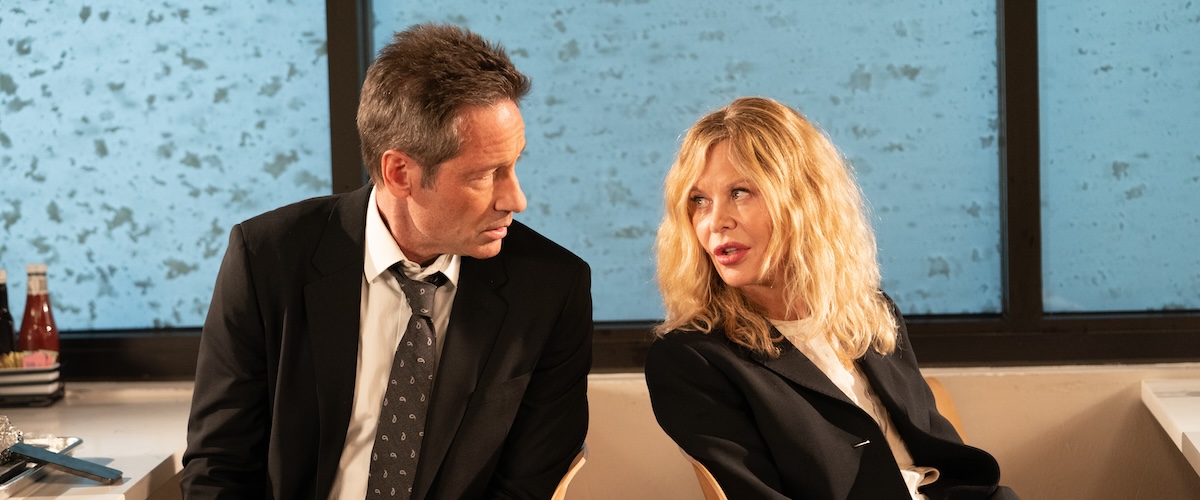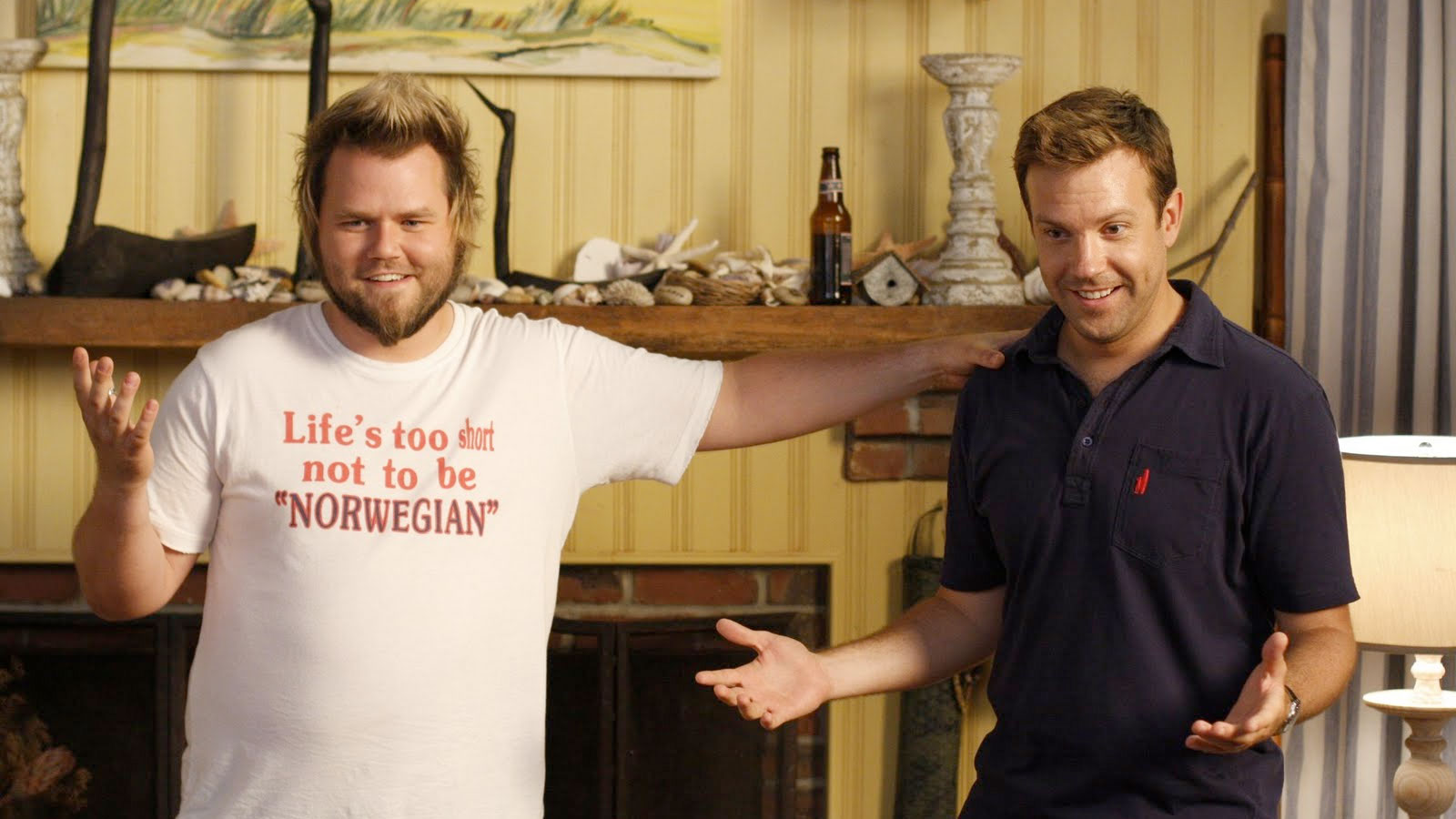Answering the question, “What is Meg Ryan up to these days?” Meg wrote and directed a film that will make you say, “this isn’t When Harry Met Sally…” And then you might be at a loss for words. Luckily, I am not.
I haven’t seen Meg Ryan in, quite literally, decades now, and she’s had work done, to which I say: “Fine, but you should know that we loved for your personality much more than your looks.” And I hastily add, “if I can tell, there’s nobody who can’t tell.” But this movie isn’t so much about Meg’s new/old look as Meg Ryan’s return to the world of romcoms.
I daresay we’ve missed her. In fact, some of us have missed her so much we were willing to sit through What Happens Later, a movie in which both the players and the audience seem to be stuck in a little slice o’ Purgatory. Would we have been better off summoning the Ghost of Meg Past while she re-lived the glory days? Maybe.
It is a snowy February 29 and several aircraft are grounded in what appears to be western New York, but we’re never told. Willa (Ryan) or “W. Davis” is headed to Boston. Bill (David Duchovny) or “W. Davis” is headed to Austin. We have to guess why as the film rolls on. Both are stuck in this strangely empty small airport and it’s only a matter of time before they meet. These two have a deep history, but it ended badly three decades ago. Is fate being kind or cruel here?
W. Davis and W. Davis do indeed meet before long and proceed to make awkward small talk. Then the conversation gets even more awkward as they comment on how awkward the small talk is. And then they get to the bickering. Couples that parted on bad terms are certainly within their rights to re-live their trespasses, but, but, but … do you really want to make a movie of it? I was consciously aware of when I first cracked a smile watching this film. 57 minutes of screentime had elapsed.
The problem with Willa and Bill is they didn’t just split because they drifted apart. The issues of infidelity and child-bearing were both on the table. Those discussions never end in jovial merriment. Hence we understand why there’s so little rom or com in this romcom.
And then I remembered my Jean-Paul Sartre and everything came together …
Hear me out.
I have an idea of my own personal Hell. I loathe airports and airplanes. They are necessary evils, but evil nonetheless. There’s nothing I like about air travel. I believe my personal Hell involves a constant shuttling from airplane to airplane, form airport to airport, from one TSA-adjacent waiting-room limbo to another.
But what if there’s more to it?
What if at each airport I “visit,” I have to meet someone I’ve disappointed or harmed during my lifetime. And I spend that particular Sartre-esque limbo discussing it. My Hell just got a lot more three-dimensional.
that particular Sartre-esque limbo discussing it. My Hell just got a lot more three-dimensional.
And that’s what I think of What Happens Later. It’s not just another play-in-movie form (I hate when I can tell); it’s an unintentional vision of Hell itself. I’m 90% sure this is not what the movie intended. But it could have – note how sparse the airport is (Could that ever be a commonality or likelihood during a “grounded flights” scenario?). Note how circuitous and undefined the airport itself is. Every airport I know is labeled, labeled, labeled. “Here’s your gate. Here’s your concourse. Here’s the TSA. Here’s the ticket. Here’s a map. Here’s a list. Here’s a food court. Here’s a newsstand.” The film never even says where these people are right now … and I’m not sure they know, either. It doesn’t matter. Also consider how the airport announcer (Hal Liggett) seems to be having personal conversations with both Willa and Bill. Heck, consider their names. Maybe this is not only Hell, but there aren’t even two people; it’s just one communal “they” at war with themselves.
For me, this particular insight didn’t make the film itself any better, but it did enhance my enjoyment tenfold with a realization that a much deeper and potentially personal film was happening. I have no idea if the original play “Shooting Star” by Steven Dietz was intended to be this deep. I hope it was, because this story is not unlike a missing piece of luggage: It’s not where it ought to be; it’s annoying to those who relied on it, and it will be more effort than it’s worth to get it where it needs to be.
There once was a starlet named Meg
Whose career went from shiny to vague
She returned with a bang
Or should I say “clang”
For her come back seems like a goose egg
Rated R, 103 Minutes
Director: Meg Ryan
Writer: Steven Dietz, Kirk Lynn, Meg Ryan
Genre: Memories of Romcommery
Type of being most likely to enjoy this film: How desperate were you for Meg Ryan to resurface?
Type of being least likely to enjoy this film: People that need romcoms to be happier affairs



